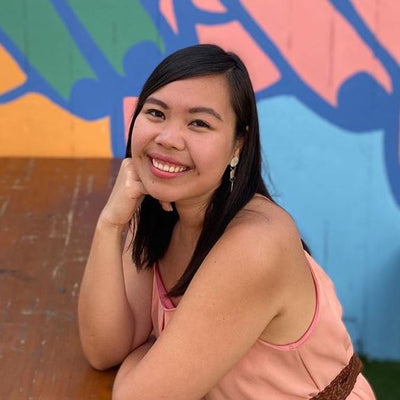‘Rest’ was not a concept I grew up with in our Filipino household. Like many of my Filipina/x friends and family, taking time for myself has generally evoked guilt and embarrassment.
I can trace many of these feelings back to my Mom (sorry Ma). My Mom is a pro at keeping busy. Even in her sixties, she’s constantly buzzing around. When I picture her, she's speaking loudly into the phone with our relatives overseas while running back and forth between the kitchen and her piles of papers on the dining table.
But in this sense, my mother is far from unique.
For Black and Brown women, the expectations are high. We must be everything to everyone - leaders in our families, our communities, and our workplaces (though often without the recognition) - putting everyone above ourselves.
There’s a reason that in Filipino culture, mothers are referred to as the ilaw ng tahanan - the light of the home. It’s a term that expresses endearment, but also dependency.
I’ve had the privilege to be surrounded by powerful women all my life. My Mom, my Titas, and my sisters set a formidable example: show up for your family and your community, and somehow also carry that financial load.
But when do we ever show up for ourselves?
Who truly wins when we go without rest? Who benefits most when we work ourselves to the bone?
Rest As Resistance
I’ve come to realize that the pressure on women of colour to constantly be ‘on’ is a symptom of our capitalist, patriarchal, and racist society. Ignoring our needs is yet another way we’re taught to de-value our time, skills, labour, bodies and energy.
When we take time to rest, we resist the narratives we’ve been taught as women of colour. When I bring up self-care with my Titas, they shrug me off. 'That's not a conversation for us,' they seem to say.
But the first step toward helping us heal forward AND backward begins by talking about it.
So we reached out to our Cambio community and asked, 'how do you rest? What are your self-care rituals?'
Here’s what they shared:






It's important to note that rest looks different for everyone. Rest can be a refreshing face mask, but it can also be saying no. It can also mean setting boundaries to protect your energy or asking for help.
There’s beauty in seeing our kapwa (fellow Filipinos) take time to breathe, rest, and celebrate our well being.
Rest is resistance. It’s also the first step towards healing.
How about you? How do you prioritize your own self-care and rest?
Gelaine Santiago

Gelaine is a social entrepreneur, an online storyteller, and a passionate advocate for diversity and ethics in business. She’s the co-founder of Cambio & Co., an e-commerce fashion company working with Filipino artisans to celebrate Filipino craftsmanship, culture, and heritage. Gelaine is also one of the founders of Sinta & Co., the world’s first conscious Filipino wedding boutique. She was named one of RBC’s Top 25 Canadian Immigrants of 2019. Find her on Instagram @gelainesantiago and www.gelainesantiago.com



Leave a comment